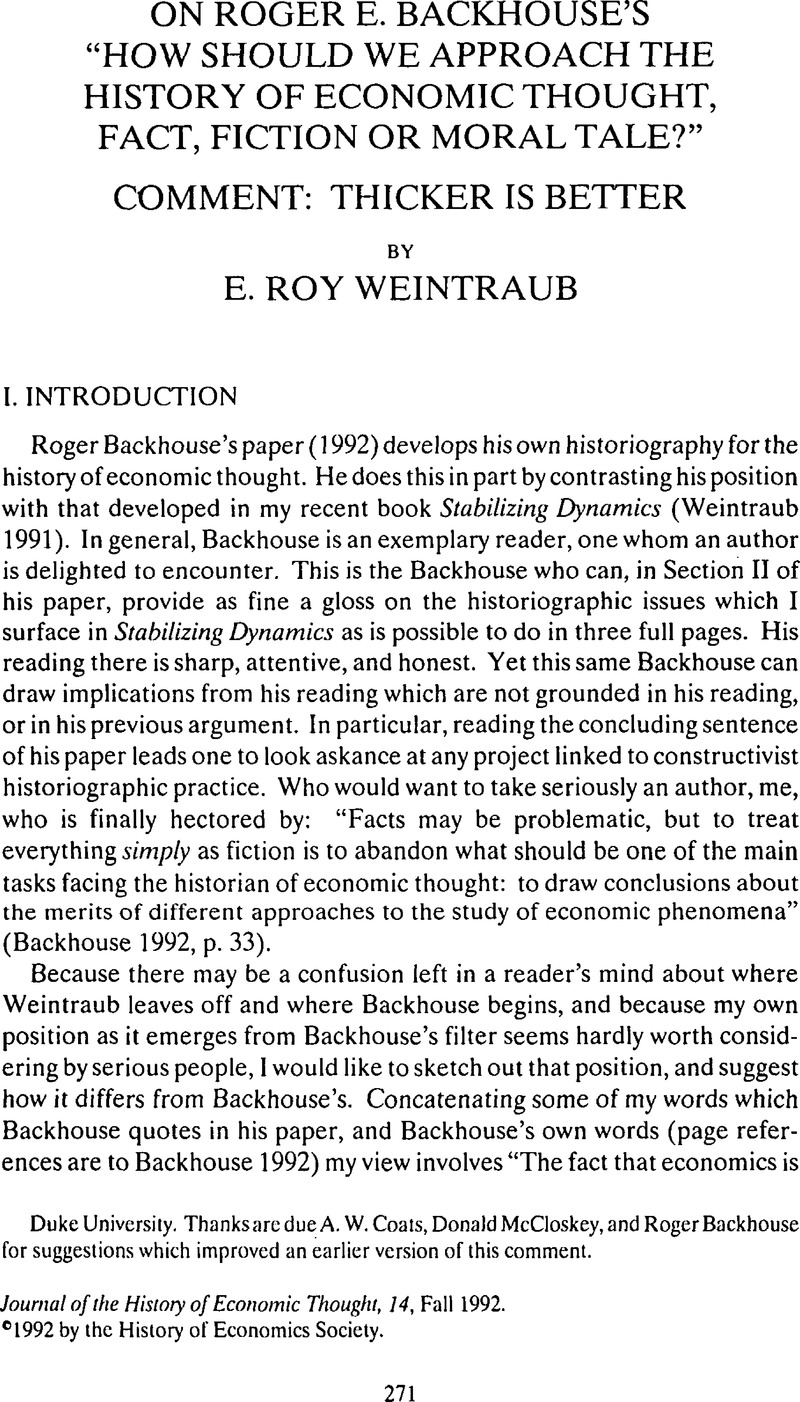Crossref Citations
This article has been cited by the following publications. This list is generated based on data provided by Crossref.
Backhouse, Roger E.
1992.
Reply: History's Many Dimensions.
Journal of the History of Economic Thought,
Vol. 14,
Issue. 2,
p.
277.
Bateman, Bradley W.
1994.
In the Realm of Concept and Circumstance.
History of Political Economy,
Vol. 26,
Issue. 1,
p.
99.
Khalil, Elias L.
1995.
Has Economics Progressed? Rectilinear, Historicist, Universalist, and Evolutionary Historiographies.
History of Political Economy,
Vol. 27,
Issue. 1,
p.
43.
Bellanca, Nicoló
and
Guidi, Marco E.L.
1997.
Uchronies and the History of Economic Knowledge*.
The European Journal of the History of Economic Thought,
Vol. 4,
Issue. 1,
p.
116.
Meardon, Stephen
2002.
The Interesting Narrative of a Duke-Trained Historian of Economics, from Prospectus to Ph.D. to Profession; or, How I Learned to Love Weintraub and Start Worrying.
History of Political Economy,
Vol. 34,
Issue. Suppl_1,
p.
272.
Oslington, Paul
2024.
Reception History and the Historiography of Economics.
History of Economics Review,
Vol. 87,
Issue. 1,
p.
28.
Edwards, José
Giraud, Yann
and
Ledezma, Ivan
2024.
THE HISTORY OF ECONOMICS SOCIETY BULLETIN AND JOURNAL OF THE HISTORY OF ECONOMIC THOUGHT (1979–2023).
Journal of the History of Economic Thought,
Vol. 46,
Issue. 4,
p.
636.



